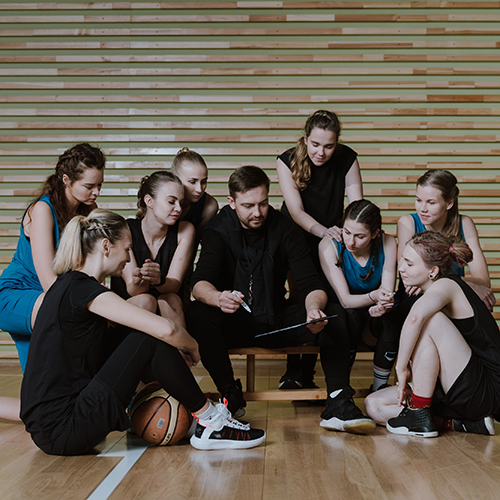The Right Data … The Right Decision … To Get Your HeadSet
What Is A Situational Judgment Test In Sport?
Sports organizations spend a lot of time and money monitoring athletes to make decisions about them based on their abilities. They often put potential athletes through an assortment of physical and technical tests such as strength, speed, and agility drills, as well as some skill-based assessments like shooting, passing, and running-specific plays.
However, most performance problems that athletes struggle with during their careers are often not a result of poor physical/technical skills. In the heat of competition, athletes typically underperform because of their underdeveloped mental skills.
With that said, very few athletic organizations monitor an athlete’s mental skills and are missing out on assessing the area that might mean the most to athletic success.
Headset is excited to bring a first-of-its-kind measurement of an athlete’s mental skill. HeadSet’s Situational Judgment Test in Sport (SJTS) measures an athlete’s cognition, behavior, and attitude with realistic, hypothetical sport-relevant situations.
HeadSet’s SJTS presents athletes with challenging sports situations that they experience before, during, and after they compete. For each situation, several possible actions are presented, and athletes must identify how effective/ineffective each action is for their future performance.
HeadSet’s SJTS allows for more consistent and valid/honest responses because of its structure. Research has found that faking has less impact on SJTs than self-report inventories (such as personality inventories) and SJTs have also been shown to predict performance outcomes above and beyond self-reports and other cognitive measures. No more measurement of athlete mental skill through a self-report or a cognitive test that is not supposed to be used with athletes.
Benefits Of Using A Situational Judgment Test
- Use a test that is sport-specific and cannot be manipulated/faked by athletes. It is a true test.
- Improve your understanding of potential recruits in key mental skills that impact sports performance (e.g., Self-Confidence, Resilience, Awareness, Focus, Performing Under Pressure, and Dealing with Unexpected Events).
- Mental skill assessment data (through the SJTS) is given directly to coaches, managers, scouts, and recruiters.
- This mental skill data will enable coaches, managers, scouts, and recruiters to ask better questions about athletic recruits, which will lead to better selections/decisions.
- Assess a current athlete or team’s overall mental skill (on the skills mentioned above).
- Use the assessment data with current athletes and teams to help identify gaps, which will allow for specific mental skill development and improvement which will lead to future athletic success.
How To Use A Situational Judgment Test
1Athlete Identification & Selection

In athlete recruitment and selection, sports organizations often know very little about the athlete they are pursuing and rely heavily on limited physical data points (e.g., through observations, videos, and online statistics).
HeadSet’s SJTS data helps to build a broader and deeper understanding of the athlete through the one area that at times means the most … mental skills! The mental skills data will enable organization stakeholders to probe deeper and specifically into key areas in future interviews, observations, and reference checks.
You will be able to find out if your potential athlete has the confidence, resilience, and competitiveness to deal with the pressures of your sport. You will also be able to select individuals who are a good fit with the team.
2Recruiter & Coach Support

Based on an athlete’s HeadSet SJTS results, important stakeholders in the selection process (i.e., scouts, recruiters, and coaches) will be given important mental skill data to dig deeper into.
Through the SJTS data, HeadSet will support organizational stakeholders by helping them to understand an athlete’s mental strengths and development areas, as well as being able to guide them in asking specific interview questions or examining specific observations relevant to the potential athlete.
This is powerful information that enables stakeholders before making key decisions.
3Athlete and Team Mental Development

HeadSet SJTS data is also helpful for continuing to develop individual and team mental skills. Once athletes have been selected, the mental skill component of the athlete’s journey does not stop.
The HeadSet program will provide athletes (and teams) with customized weekly mental workouts (Mental WOWS), as well as weekly progress reports that outline their mental strength development over time.
The HeadSet system continuously collects data that can be analyzed at a deeper level. It is these valuable datasets that help to provide a full picture of the athlete’s and team’s current situation.
This deeper analysis by HeadSet can identify patterns and relationships that can lead to quicker and smarter interventions during the season.
Please feel free to take a brief complimentary version of the HeadSet SJT to take a deeper look at the assessment.
https://uoguelph.eu.qualtrics.com/jfe/form/SV_9mNVgEDd7QHJBAy
You can also learn more about the assessment by filling out the form below.
